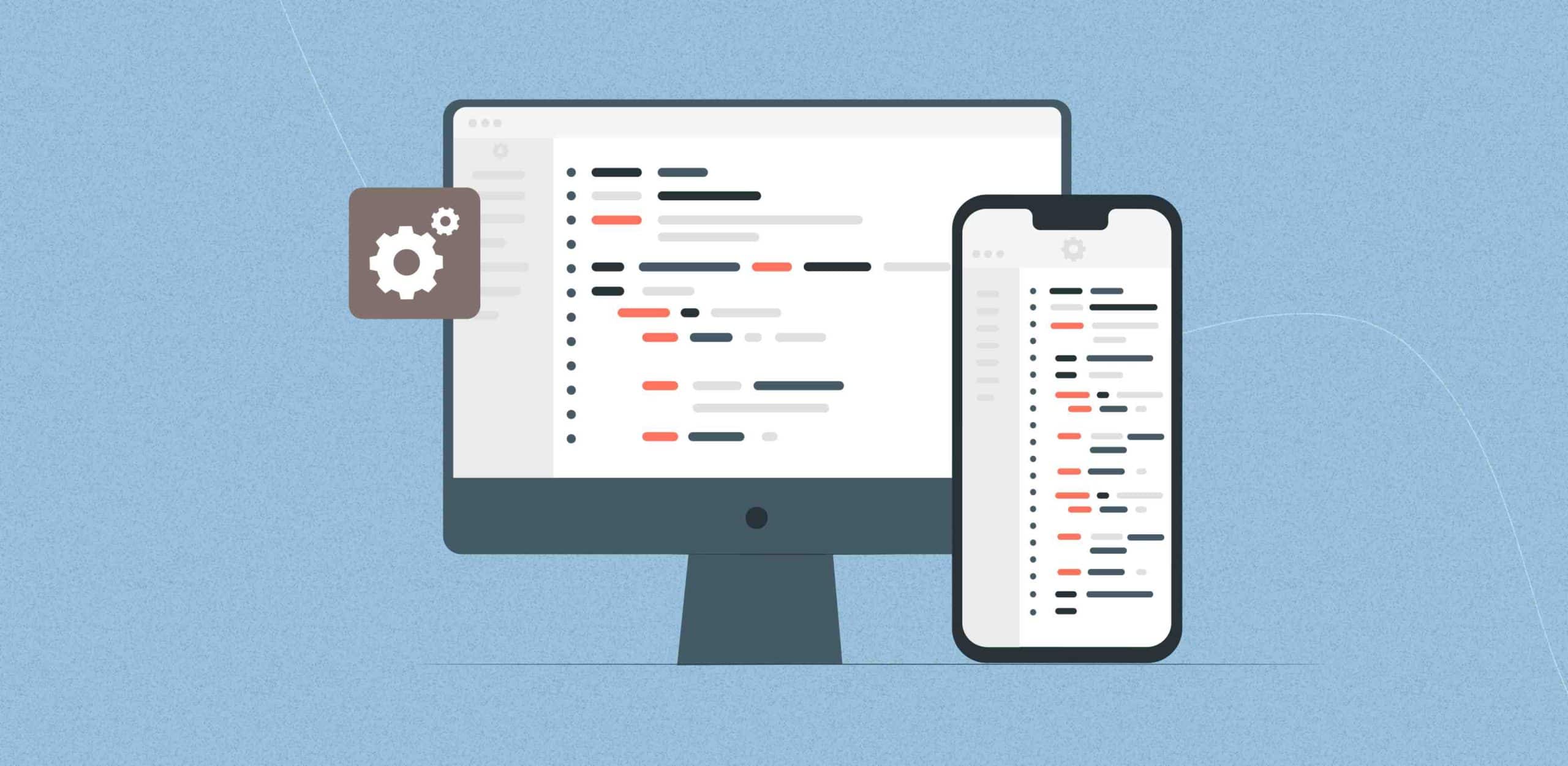AI in healthcare is transforming the way patient care is delivered, making it more efficient, accurate, and personalized. By leveraging advanced technologies to analyze vast datasets, predict outcomes, and automate complex tasks, artificial intelligence is reshaping the healthcare industry. From early disease detection to creating individualized treatment plans, AI is revolutionizing how providers and patients interact with care systems.
As the adoption of AI-driven solutions grows, healthcare providers and patients benefit from faster diagnoses, enhanced treatment precision, and streamlined operations. This blog explores the current state of AI in healthcare, its transformative applications, the benefits it offers, the challenges it faces, and the future it promises by 2025. Whether you’re a healthcare professional, a tech enthusiast, or an entrepreneur, understanding AI’s potential in healthcare is essential.
Know how AI development solutions are transforming the healthcare industry.
The Current State of AI in Healthcare
The integration of artificial intelligence (AI) into healthcare has progressed rapidly over the last decade, driven by technological advancements, increased data availability, and the demand for more efficient and accurate medical solutions. AI’s potential to revolutionize patient care and streamline healthcare operations has captured the attention of medical professionals, policymakers, and technology companies alike.
Market Growth and Projections
The adoption of AI in healthcare has witnessed exponential growth, with the global AI healthcare market projected to reach $187.95 billion by 2030, growing at a compound annual growth rate (CAGR) of 37%. This substantial growth reflects the increasing reliance on AI-powered tools to address critical challenges such as resource shortages, rising healthcare costs, and the need for improved patient outcomes.
Key Applications of AI in Healthcare
Medical Imaging
One of the most significant contributions of AI in healthcare lies in medical imaging. AI-powered systems are designed to assist radiologists by analyzing medical images such as X-rays, MRIs, and CT scans. These tools can detect anomalies, including tumors, fractures, and other irregularities, with remarkable accuracy and speed. For example:
- Breast Cancer Detection: AI algorithms have demonstrated the ability to identify early signs of breast cancer in mammograms, often outperforming human radiologists.
- Neurological Disorders: AI helps in detecting conditions like Alzheimer’s disease and stroke through advanced imaging analysis.
By reducing diagnostic errors and improving the accuracy of image interpretation, AI enhances patient outcomes and reduces the burden on radiologists.
Drug Discovery
The traditional drug discovery process is lengthy, expensive, and fraught with high failure rates. AI has emerged as a game-changer by accelerating this process through:
- Molecular Screening: AI models predict the effectiveness of various compounds against specific diseases.
- Clinical Trial Optimization: AI identifies ideal candidates for clinical trials, ensuring better outcomes and faster results.
- Repurposing Existing Drugs: AI can analyze existing drugs to identify new therapeutic uses.
Remote Patient Monitoring
AI has transformed remote patient monitoring (RPM) by integrating with wearable devices and smart sensors to track patients’ health in real time. These devices collect data such as heart rate, blood pressure, glucose levels, and oxygen saturation. AI algorithms analyze this data to:
- Detect abnormalities.
- Alert healthcare providers to potential health risks.
- Support patients in managing chronic conditions like diabetes and hypertension.
For example:
- AI-enabled RPM systems have been instrumental in managing post-operative care, reducing hospital readmissions, and improving recovery rates.
- During the COVID-19 pandemic, RPM systems allowed physicians to monitor infected patients remotely, minimizing the risk of exposure.
Transformative Applications of AI in Healthcare by 2025
AI is poised to redefine healthcare delivery, offering solutions that go beyond traditional practices. By 2025, its transformative applications will revolutionize patient care, improving outcomes, streamlining processes, and enhancing accessibility. Below are the key areas where AI will have the most significant impact.
Predictive Diagnostics
Predictive diagnostics is one of the most promising applications of AI in healthcare. These tools analyze vast amounts of data, including patient histories, genetic profiles, lifestyle factors, and environmental conditions, to predict the likelihood of diseases before symptoms appear.
How It Works:
- AI systems process historical and real-time patient data to identify subtle patterns and anomalies.
- Predictive models highlight high-risk individuals, enabling preventive interventions.
- For chronic conditions like diabetes, hypertension, and cardiovascular diseases, AI tools help in early detection, improving long-term health outcomes.
Benefits:
- Early Detection: Diseases like cancer and Alzheimer’s can be identified at stages when treatments are most effective.
- Reduced Healthcare Costs: Preventing diseases reduces the need for costly, intensive treatments.
- Enhanced Accuracy: AI algorithms minimize false positives and negatives, leading to precise diagnostics.
Personalized Treatment Plans
Every patient is unique, and AI enables truly personalized care by tailoring treatment plans based on an individual’s specific characteristics. Using patient data such as medical history, genetic information, and lifestyle factors, AI determines the most effective treatments for each individual.
Applications in Pharmacogenomics:
- AI analyzes genetic profiles to predict how a patient will respond to specific medications.
- Treatment regimens are adjusted to maximize efficacy and minimize side effects.
Example Use Case:
AI tools assist oncologists in devising cancer therapies by evaluating tumor profiles and predicting responses to chemotherapy or immunotherapy.
Benefits:
- Higher Success Rates: Customized treatments improve the likelihood of positive outcomes.
- Minimized Adverse Effects: Patients receive therapies that suit their biological makeup.
- Improved Patient Satisfaction: Personalization ensures a more patient-centered approach.
- AI-Powered Virtual Health Assistants
By 2025, AI-powered virtual health assistants will become indispensable in managing everyday healthcare tasks. These intelligent systems offer 24/7 support, enhancing patient engagement and accessibility to care.
Capabilities:
- Scheduling Appointments: Virtual assistants simplify booking consultations with healthcare providers.
- Medication Management: AI sends reminders to ensure patients adhere to prescribed regimens.
- Answering Queries: Patients receive instant, accurate responses to general health-related questions.
- Facilitating Teleconsultations: AI assistants streamline virtual consultations by collecting preliminary information and summarizing it for healthcare providers.
Benefits:
- Continuous Support: Patients receive assistance anytime, reducing dependency on physical visits.
- Reduced Workload: Healthcare professionals can focus on complex cases while virtual assistants handle routine inquiries.
- Improved Access: Patients in remote areas gain access to timely care.
- Enhancing Surgical Precision
AI is revolutionizing surgical procedures by integrating with robotic systems to enhance precision, reduce invasiveness, and improve outcomes. AI-assisted robotics combines the surgeon’s expertise with real-time data and machine learning.
How It Works:
- AI systems provide detailed, 3D visualizations of the surgical site.
- Robotic arms, guided by AI, perform precise movements, reducing the risk of errors.
- Real-time analytics offer insights during surgeries, enabling better decision-making.
Benefits:
- Fewer Complications: AI reduces risks such as infections and surgical errors.
- Faster Recovery: Minimally invasive techniques mean shorter hospital stays and quicker recoveries.
- Enhanced Outcomes: Patients experience improved results due to precision-based interventions.
- Streamlining Administrative Tasks
Administrative inefficiencies contribute significantly to healthcare costs and delays. AI automates time-consuming tasks, enabling providers to focus more on patient care.
Applications:
- Medical Billing and Coding: AI tools process claims faster and with greater accuracy, reducing errors.
- Insurance Claims Processing: Automated systems analyze and validate claims, speeding up reimbursements.
- Appointment Scheduling: Intelligent systems optimize schedules, reducing wait times and no-shows.
- Patient Record Management: AI organizes and retrieves electronic health records (EHRs) seamlessly.
Benefits:
- Cost Savings: Automation cuts operational expenses and administrative waste.
- Improved Accuracy: Errors in billing and record-keeping are minimized.
- Enhanced Productivity: Providers can allocate more time to patient care.
- Advancing Mental Health Care
AI is playing an increasingly vital role in addressing mental health challenges, offering scalable and accessible solutions to support individuals facing stress, anxiety, depression, and other conditions.
AI-Driven Solutions:
- Chatbots and Virtual Therapists: AI-powered chatbots provide real-time emotional support, simulate conversations, and offer coping strategies.
- Mood Tracking: Apps analyze user interactions, speech patterns, and biometric data to monitor mental health.
- Personalized Interventions: AI tools recommend mindfulness exercises, therapy sessions, or lifestyle changes tailored to the user’s condition.
Benefits:
- Accessible Support: Patients can access mental health assistance anytime, anywhere.
- Reduced Stigma: Virtual tools offer privacy, encouraging individuals to seek help.
- Early Detection: AI identifies behavioral patterns indicative of mental health disorders, prompting timely intervention.
Read to know about Custom Software Development for predictive analytics using AI and Machine Learning in Healthcare.
Benefits of AI for Patients and Healthcare Providers
Artificial intelligence (AI) is revolutionizing healthcare by delivering significant benefits to both patients and healthcare providers. By streamlining processes, improving accuracy, and enabling personalized care, AI is making healthcare systems more efficient and accessible. Here’s how AI in healthcare is transforming the experience for patients and providers alike:
For Patients
Faster Diagnoses
AI significantly reduces the time required to diagnose medical conditions by quickly analyzing medical records, lab results, and imaging scans. For instance, AI-powered imaging tools can detect abnormalities such as tumors or fractures in seconds, allowing doctors to initiate treatment promptly. This speed is crucial in conditions like cancer or strokes, where early intervention can save lives.
Personalized Care
AI enables tailored treatment plans by analyzing a patient’s genetic profile, lifestyle factors, and medical history. Unlike traditional one-size-fits-all approaches, AI ensures that therapies are customized for maximum effectiveness. For example, in pharmacogenomics, AI helps identify how an individual will respond to specific drugs, minimizing adverse reactions and improving outcomes.
24/7 Access to Care
AI-powered virtual health assistants and telemedicine platforms provide patients with round-the-clock access to healthcare services. Whether it’s scheduling appointments, getting medication reminders, or addressing basic health concerns, AI ensures patients can access support anytime. This is particularly beneficial in remote or underserved areas where healthcare providers may be limited.
Lower Costs
By reducing hospital readmissions, unnecessary diagnostic tests, and administrative inefficiencies, AI helps lower healthcare costs for patients. AI-powered predictive tools also identify potential health issues before they escalate, enabling preventive care that is often more affordable than treating advanced conditions.
For Healthcare Providers
Improved Decision-Making
AI provides actionable insights from vast datasets, enabling healthcare professionals to make informed decisions. For example, AI can analyze patterns in patient data to suggest potential diagnoses, predict disease progression, or recommend the best treatment options, supporting clinicians in delivering high-quality care.
Reduced Workload
Repetitive and time-consuming tasks, such as documentation, scheduling, and coding, are automated with AI tools. This allows healthcare providers to focus more on patient care and less on administrative duties. By streamlining workflows, AI also reduces burnout among medical staff.
Enhanced Accuracy
AI minimizes errors in diagnosis and treatment by analyzing data with unmatched precision. For instance, AI algorithms can identify subtle anomalies in medical images that might be overlooked by the human eye, reducing the risk of misdiagnosis and improving patient outcomes.
Cost Efficiency
AI streamlines operational processes, optimizing resource allocation and reducing operational costs. Whether it’s managing hospital inventory, automating billing, or scheduling surgeries, AI ensures that resources are utilized efficiently, enabling providers to deliver cost-effective care.
Contact us to discuss your project and bring your AI-driven vision to life.
Ethical and Regulatory Challenges
The integration of AI in healthcare comes with immense potential to revolutionize patient care and healthcare operations. However, its adoption also raises significant ethical and regulatory challenges. Addressing these issues is critical to ensure that AI systems are safe, fair, and trustworthy. Below, we explore the key challenges that healthcare providers, technology developers, and policymakers must tackle to facilitate the responsible use of AI in healthcare.
Data Privacy and Security
AI systems depend on large volumes of sensitive patient data to function effectively. This includes electronic health records (EHRs), genetic information, and real-time data from wearable devices. While this data enables AI to make accurate predictions and improve decision-making, it also poses serious risks if not properly secured.
Compliance Requirements: Healthcare organizations must comply with data protection regulations such as the Health Insurance Portability and Accountability Act (HIPAA) in the U.S. and the General Data Protection Regulation (GDPR) in the European Union. These regulations mandate stringent measures to safeguard patient data, including encryption, access controls, and anonymization techniques.
Risk of Data Breaches: Cyberattacks targeting healthcare systems can result in data breaches, exposing sensitive information and eroding public trust. Developers and healthcare organizations must prioritize robust cybersecurity frameworks to mitigate such risks.
Bias in AI Models
AI systems are only as good as the data they are trained on. Unfortunately, historical biases in healthcare data can result in AI models that deliver unfair or inaccurate outcomes.
- Impact on Marginalized Groups: Biased datasets may underrepresent certain demographic groups, leading to incorrect or suboptimal diagnoses and treatments for those populations. For example, AI systems trained primarily on data from urban hospitals may fail to address the unique healthcare needs of rural communities.
- Mitigation Strategies: To address this issue, developers must employ diverse and representative datasets. Regular auditing and refinement of AI models are also essential to identify and correct biases.
Regulatory Compliance
The regulatory landscape for AI in healthcare is still evolving, creating challenges for developers and providers seeking to implement AI solutions.
- Approval Processes: Regulatory bodies such as the FDA in the U.S. and the EMA in Europe are tasked with ensuring the safety and efficacy of AI tools. However, existing frameworks often need adaptation to accommodate the unique features of AI, such as continuous learning and dynamic updates.
- Global Variability: Regulations differ across countries and regions, complicating the deployment of AI systems on a global scale. Companies must navigate these regulatory nuances to ensure compliance in each jurisdiction.
AI’s Future in Healthcare
The future of AI in healthcare is transformative, promising advancements that will revolutionize patient care by 2025. As AI becomes an integral part of the healthcare ecosystem, it will enable more efficient, personalized, and accessible care delivery. Key trends, such as the rise of telemedicine, precision medicine, and AI-driven research, will shape the next decade of healthcare innovation. These advancements will not only improve patient outcomes but also reduce costs and bridge gaps in healthcare accessibility. Below, we delve deeper into the key trends that will define AI’s role in healthcare by 2025.
Expansion of Remote Care
AI is at the forefront of driving telemedicine and remote patient monitoring, enabling healthcare providers to deliver care to underserved and remote areas.
- Telemedicine Revolution: AI-powered platforms are enhancing teleconsultations, allowing physicians to diagnose and treat patients virtually. These systems use natural language processing (NLP) to analyze patient symptoms and provide actionable insights during virtual appointments.
- Remote Monitoring Devices: AI integrates with devices like smartwatches, glucose monitors, and blood pressure cuffs to continuously track patient vitals. Advanced algorithms analyze real-time data to detect abnormalities and alert healthcare providers promptly.
- Benefits: Improved access to healthcare, especially for rural populations, reduced patient travel costs, and faster response times in emergencies.
Integration with Wearables
Wearable devices are evolving beyond fitness tracking to become indispensable tools for monitoring and managing health conditions.
- Real-Time Health Data: Wearables embedded with AI algorithms can monitor heart rate, blood oxygen levels, sleep patterns, and activity levels. These devices generate valuable data that AI analyzes to provide personalized health insights.
- Disease Management: For chronic diseases such as diabetes and hypertension, wearables combined with AI offer proactive solutions by detecting patterns and suggesting interventions.
- Future Innovations: By 2025, advanced wearables may include features like continuous glucose monitoring without needles or AI-powered mental health trackers capable of detecting stress and anxiety.
Precision Medicine at Scale
AI is poised to bring precision medicine into mainstream healthcare, transforming the way diseases are diagnosed and treated.
- Tailored Treatments: AI analyzes genetic, environmental, and lifestyle factors to recommend highly personalized treatment plans. This is particularly beneficial for patients with complex or rare conditions.
- Cancer Treatment: AI algorithms can identify genetic mutations linked to specific cancers, allowing oncologists to design targeted therapies that improve survival rates.
- Scalability: By automating data analysis and integrating insights from genomic research, AI makes precision medicine accessible to larger patient populations, bridging the gap between cutting-edge research and clinical practice.
AI-Powered Research
The integration of AI into medical research is accelerating discoveries and enabling breakthroughs that were previously unimaginable.
- Drug Discovery: Traditional drug discovery processes can take years and cost billions of dollars. AI shortens this timeline by identifying potential compounds, simulating their interactions, and predicting their effectiveness with remarkable accuracy.
- Clinical Trials: AI optimizes clinical trials by selecting the right participants, predicting outcomes, and monitoring patient responses in real-time. This ensures faster approvals and improved safety profiles for new treatments.
- Medical Innovation: By analyzing vast datasets from patient records, scientific literature, and ongoing studies, AI uncovers new correlations and insights that drive innovation in treatment methodologies.
Conclusion
Artificial Intelligence is transforming the future of healthcare by enhancing patient care, optimizing processes, and enabling personalized treatments. By 2025, AI’s impact on predictive diagnostics, robotic surgeries, virtual assistants, and more will redefine the healthcare landscape.
For healthcare providers and entrepreneurs looking to harness the power of AI, collaborating with an experienced AI development company is crucial. Whether you need a tailored AI solution or a comprehensive healthcare app, we’re here to help.
Partner with our team of experts to bring your vision to life. As a leading healthcare app development company, we specialize in building innovative, AI-driven solutions designed to meet your unique needs.
Let’s transform your business for a change that matters.
F. A. Q.
Do you have additional questions?
What is AI in healthcare, and how is it used?
AI in healthcare involves the use of artificial intelligence technologies like machine learning, natural language processing, and robotics to improve patient outcomes, streamline operations, and enhance medical research. Applications include early diagnostics, personalized treatments, and virtual health assistants.
How does AI improve patient care in healthcare?
AI improves patient care by enabling:
- Early and accurate diagnosis of diseases
- Development of personalized treatment plans
- Real-time health monitoring through wearables
- Enhanced surgical precision with AI-assisted robotics
- Efficient telemedicine services
What are the benefits of AI in patients?
For patients, AI offers:
- Faster and more accurate diagnoses
- Access to personalized care
- 24/7 virtual health assistance
- Reduced treatment costs through optimized processes
- Continuous health monitoring with wearable devices
How does AI impact healthcare providers?
AI supports healthcare providers by:
- Reducing workload with automated administrative tasks
- Offering actionable insights for data-driven decision-making
- Enhancing diagnostic accuracy
- Improving operational efficiency, leading to cost savings
What are the most promising AI applications in healthcare?
Some key AI applications include:
- Predictive diagnostics for early disease detection
- Personalized medicine for tailored treatment
- AI-powered robotic surgeries
- Remote patient monitoring
- AI in drug discovery and clinical trials
How does AI enable remote healthcare and telemedicine?
AI enhances remote care by:
- Integrating with wearable devices to monitor real-time health data
- Powering telemedicine platforms for virtual consultations
- Providing AI-driven health assistants for 24/7 support
- Improving access to care in underserved and rural areas
What challenges does AI in healthcare face?
Major challenges include:
- Data privacy and security concerns
- Bias in AI algorithms leading to unfair outcomes
- High implementation costs
- Regulatory barriers for AI approval
- Limited trust among patients and practitioners
What role does AI play in precision medicine?
AI powers precision medicine by analyzing genetic, lifestyle, and environmental factors to create personalized treatment plans. It is particularly beneficial for treating complex conditions like cancer and rare diseases.
How will AI impact healthcare by 2025?
By 2025, AI is expected to:
- Revolutionize telemedicine and remote care
- Enable advanced wearable health monitoring
- Scale the adoption of precision medicine
- Accelerate drug discovery and medical research
- Streamline healthcare operations and improve patient outcomes
How can businesses leverage AI in healthcare solutions?
Businesses can collaborate with an AI development company or a healthcare app development company to build customized, scalable AI solutions tailored to healthcare challenges. These partnerships ensure innovative and compliant technologies that transform patient care.














